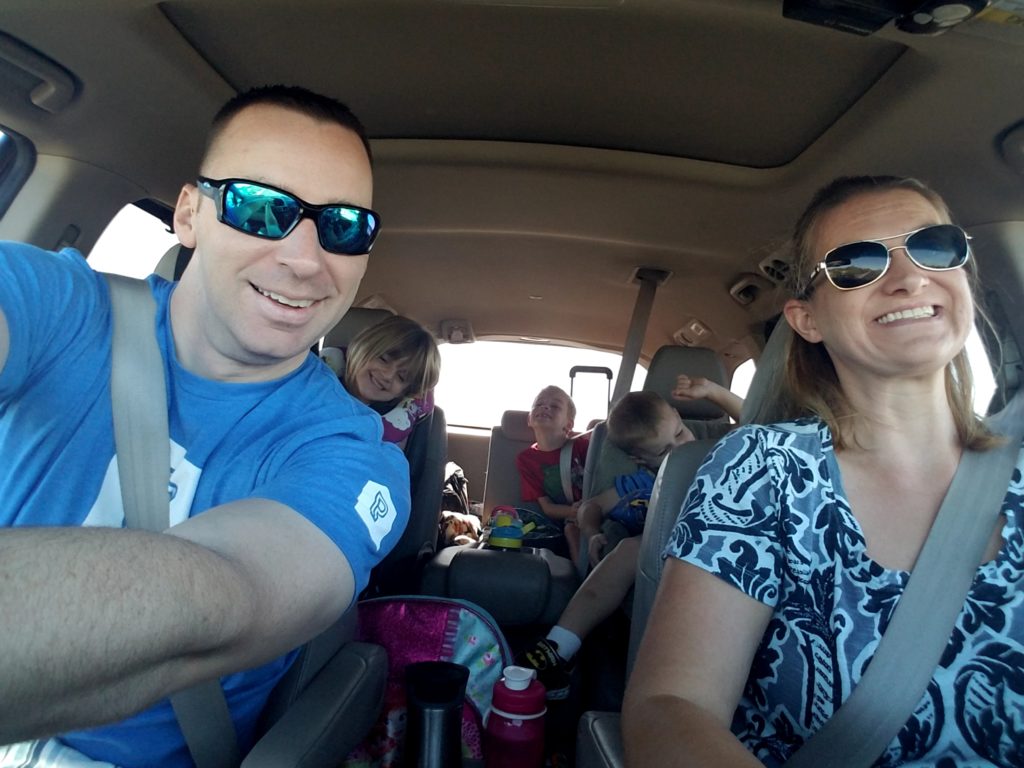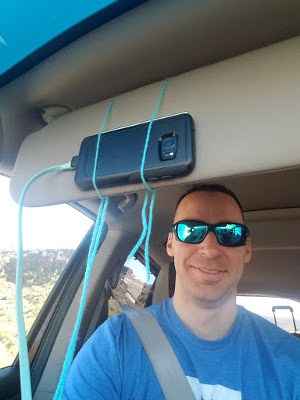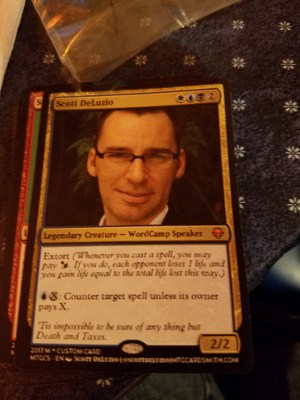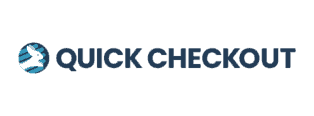This year, I made it a goal of mine to speak in front of new audiences, and meet new people. WordCamp Salt Lake City provided me with exactly that opportunity. I submitted my first WordCamp talk application, for my talk Taxes for Techies, to the event organizers a few months ago and they accepted it! While I was in Salt Lake City, I realized that I knew exactly zero attendees, which was awesome because it made sure that no matter who I spoke to I’d be meeting someone new.
The Trip to Salt Lake City
My wife has wanted to visit Salt Lake City for the longest time, but we just never got around to it. When my application to speak was accepted, we decided that instead of me flying up for the day, we’d drive the whole family up to Salt Lake City.

Our kids – ages 7, 5, and 4 – were amazing throughout the entire trip. We drove from our home in the Phoenix, AZ area to Cedar City, UT and stayed the night, then continued the trip the next day to Salt Lake City. Total driving time from our home to Salt Lake City was just over 10 hours.
Why am I mentioning this, besides the fact that we spent nearly an entire day in the car this past weekend?
The views that you get from driving around the southwest are absolutely incredible. While I probably wouldn’t do this particular drive again, it was definitely worth it once for the views alone.
My wife had a cool idea to set up a phone on the time-lapse setting to record the trip. Unfortunately, we didn’t bring anything to steady the camera, so I found some of my wife’s yarn and tied it up to the sun visor in the car.
Eat your heart out LifeHacker.

If you want to drive vicariously (at about Mach 5) through the Southwestern United States, you can check out the video below.
Baby, it’s cold outside…
It was much colder in Utah than I expected it to be. Living in Phoenix for a few years has spoiled me to great weather, so I didn’t even think to plan for snow in September!
But, my kids got to have a snowball fight. For one of my kids, it was the first time he ever played in the snow, so this was definitely memorable.

WordCamp Salt Lake City 2017 Highlights
OK, enough about the journey. It’s about the destination, right? Let’s talk WordCamp.
Speaker’s Dinner
As a speaker this year, I was invited to attend the speaker’s dinner. It was great to get to meet some of the other speakers over dinner. I’ve found that some of the most meaningful conversations at WordPress related conferences take place either before or after the actual sessions.
Like I mentioned earlier, everyone I saw at this WordCamp was someone I was meeting for the first time, including the speakers. Sitting down to dinner with them was a great way to get to know a few of them better than I would have if we just met in passing.
Plus, the speakers were given a pretty cool gift – a deck of customized Magic: The Gathering cards with each speaker having their own card. I’ll admit that I’ve never played the game, but it’s still a really cool personal touch.

The Talks
The venue for this year’s WordCamp was a place called Church & State. It’s an old church that was turned into a sort of coworking space. Because of the layout, there were able to be three tracks going on simultaneously. Probably the only downside to this WordCamp was not being able to hear all of the talks!
Here are my notes on the talks I was able to attend.
Better Admin Navigation for Large Sites – Clarence Bowman
Clarence spoke about the need for better admin navigation in WordPress, which honestly wasn’t something I thought much about prior to his talk.
Think about the process of searching for a page on your site – whether that page is an actual page, a blog post, or some other CPT.
- Open up the Posts > All Posts page
- Type a phrase in the search box, and click Search
- Hope that you searched the correct phrase
- Hope that you searched in the correct post type
- Scroll through a list of dozens of results just to realize that you’re searching in the wrong post type’s page
- Go to the right post type and repeat
Seems like an awfully long process doesn’t it?
To remedy this, he created a search tool that is more flexible than the existing solution, called WXY Searchmark.
It has one search panel that is accessible from anywhere in the WordPress admin that provides users a much more powerful search. You can even bookmark searches for common search features.
Another thing it does, which I think is pretty cool, is it can open up multiple posts at once. Think about the default Posts > All Posts page. Let’s say you want to edit something in every post about Pandas. You then search for Pandas and get a list of posts. Great, now you check the box next to each of them, select Edit in the Bulk Actions…and you can change the author, category, status, etc. But that doesn’t help if you want to edit something inside the post itself. WXY Searchmark opens up each post in a separate tab so you can quickly do the work you need to do.
Pretty neat idea. Check it out and give some feedback if it’s helpful to you.
Increase Your Personal Bandwidth: Single-Handedly Manage 100s of WP Sites & Clients – Tevya Washburn
Tevya talked about the nightmare he faced with managing multiple WordPress sites. At first, all of his client sites were single WordPress installs, but his hosting couldn’t handle it all. He switched to multisite, which helped, but he quickly outgrew that as well. The problem with multisite was that there was a single point of failure – once one site went down, all of them would be down.
He decided to stop using shared hosting, and spread sites over multiple servers. He also stopped using his hosting server for email – it’s called “web hosting” not “email hosting” for a reason!
Now he uses MainWP, Cloudways, Flywheel, and SendGrid for his clients, and things run much smoother.
He emphasized to find and use great tools, outsource everything you can, focus on your superpower, and use tools that multiply you.
Entrepreneurish: WordPress as a Business Building Block – Gina Marie Zanutto
Gina’s talk focused on how to use WordPress as a key tool in building a business. Really, the concepts she talked about could apply to any business with an online presence.
She talked about how to get traffic to your site, optimize the site for speed and security to be able to handle the traffic, and interact with the traffic with a live chat type of plugin.
Her talk also covered building a sustainable business model as a part-time freelancer turning to full-time development career.
- Resources: word of mouth referrals, upwork.com, nice business cards/networking strategy, WPMU Dev Blog, tagging client sites with your company info
- Contracts: non-disclosure, scope of work & project outline, basic terms (pay/timeline)
- Time and stress management
- Warranty period – time you’ll guarantee your original scope of work
It was a good talk if you’re looking to make a career move into full-time development/design work.
Taxes for Techies
My talk was on Taxes for Techies. The talk focused on educating businesses about their responsibility for issuing 1099’s to their contractors.
My goal was to provide guidance for:
- Who was supposed to be issued a 1099
- When the 1099’s were supposed to be issued by
- How the 1099’s needed to be prepared
- Penalties for not issuing 1099’s on time
It was my first WordCamp talk, and the first recorded talk I ever gave. Once it’s online I’ll update this post with a link to it.
Lightning Talks
These were quick 10-minute talks, so there isn’t much detail to provide.
Credit Cards: The Stupid Tax – Brenner Adams
Stripe, PayPal, and other common processing companies charge a flat rate, which is much higher than what the actual charge should be.
Brenner made the analogy of a grocery store charging $10 for every product because it’s too confusing to have thousands of prices for every single item on the shelf. This is basically what companies like Stripe do. Their rate is slightly less than American Express charges, and way more than what Visa, MasterCard, etc. charge. They eat the cost of the AMEX charges and pocket the profit on the others.
His service, ilkli, provides credit card processing services at much lower rates than the traditional payment processing companies.
Inbound Marketing for the Small Business – Chris Fontes
Chris talked about inbound marketing, also known as content marketing. It’s important to make content that matters to the people who matter to you.
His plugin, Inbound Brew, is supposed to be an all-in-one marketing plugin that offers SEO and inbound marketing tools.
Keynote: Revenue Doesn’t Mean ???? (Sh*t) if You’re Not Profitable – Lisa Sabin-Wilson
Lisa spoke about how having a full pipeline is great, but if you’re not profitable it really doesn’t mean much.
She emphasized tracking time to make sure you’re getting paid for the appropriate amount of time that is spent on a project. Also, make sure scope creep and change management are handled appropriately so that you aren’t doing work outside the scope of the project. More importantly, so that you get paid for the work if it is outside that scope.
A full pipeline is great, but understand expenses. Revenue doesn’t mean shit if you’re not profitable.
Field Guide to Caring for a Developer – Allison Tarr
We focus a lot on what we do for our “label” – I’m a ____ (developer, designer, accountant, lawyer, etc.) But we’re much more than that – think of the things that define you outside of work.
“Burnout” seems to be a more acceptable term for mental health issues in the tech industry. We just accept that long hours and little time off are part of the job, but it doesn’t have to be that way. Employers should do their part to make sure employees are taken care of, and freelancers should learn how to take care of themselves.
A high “burnout” rate is not sustainable – tech industry has high rates. If the tech industry has people burning out they won’t stick around long enough to advance. Without that longevity, we’ll have a bunch of companies run by people with entry-level skill levels, which is not sustainable.
We all need to take breaks to unwind – “Put on your oxygen mask first” take care of yourself, take vacations, or do other activities outside of work.
What can we do as an industry? Challenge the stigma against talking about feelings, reduce stigma by education and disclosure, support others in a sustainable fashion.
Check out Open Source Mental Illness for more resources.
**Phew** – lots of good stuff there.
Freelance Success Through Specialization – Theresa Smith
Theresa talked about how she found success as a freelancer by specializing in websites for Crossfit gyms. As a Crossfit gym owner herself, she knew the industry and was extremely passionate about it.
Her advice for freelancers:
- Come up with what you’re passionate about, whether it’s a hobby, cause, or other areas of interest.
- Think about what you know a lot about, whether it’s because you’re passionate about it, or have been educated in it.
- Find common ground between passion and knowledge – what she calls “The Sweet Spot”
You’ll have more success if you focus on one particular market than you will if you try to target every conceivable market.
You also need to get your foot in the door if you’re just starting off. She suggests:
- Attend trade shows
- Becoming an active participant in message boards
- Volunteer your knowledge – establish yourself as an expert
- Continue your education
- Volunteer to speak at events
- Create relationships
- Sponsor events
To specialize or not to specialize
- Are you willing to make the time and financial sacrifice it could take while establishing yourself?
- Is your intersection of passion and knowledge viable?
- Would specializing enable you to have your perfect day more often?
Shameless Self-Promotion – Michael Sheen and Angie Fenimore
Michael and Angie are a husband and wife team, who talked about marketing no longer being about the stuff you make, but the stories you tell.
They wanted us to think about how to tell our story and make it impactful on business.
For example, Josh Rossi is a photographer who was having a difficult time getting business. He went to storytelling by photographing kids with disabilities in an amazing way. By doing this, he managed to showcase his abilities, and his work went viral as a result. He monetized his knowledge of photography by creating an online course to teach others to do photography. Oh, and he’s also landed gigs with major companies like Adobe, Acura, LG, and Nickelodeon, just to name a few.
Always Be Closing used to be the sales theory. Now it’s Always Be Helping.
Provide content on your website that is meaningful. But go deeper than just useful content – talk about relationships. Laughter, tears, thought, chill factor – focus on these when telling a story.
The purpose of your website should be to connect with others. Social media likes are “vanity metrics” that doesn’t matter if you aren’t engaging with your audience.
Conclusion
WordCamp Salt Lake City 2017 was a great event that provided me with the opportunity to meet some new people. I’m looking forward to next year!




Leave a Reply